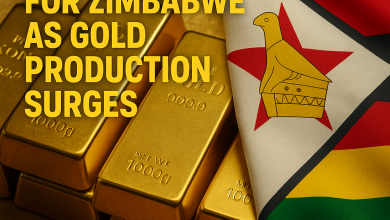Zimbabwe Government Transfers Umguza CSC Farms Cattle Project to War Veterans

Empowering Liberation Heroes Through Agricultural Investment
Umguza, Zimbabwe – May 29, 2025 – In a significant move to uplift the welfare of war veterans, the Government of Zimbabwe is set to hand over the Umguza CSC Farms Cattle Project to the War Veterans Investment Board. The ceremony, scheduled for tomorrow, marks a pivotal step in integrating war veterans into the nation’s economic development, particularly within the agricultural sector.
A Strategic Investment in Agriculture and Veteran Empowerment
The Umguza CSC Farms Cattle Project, located in Matabeleland North, boasts approximately 300 head of cattle. This initiative aligns with the government’s broader strategy to revitalize the agricultural sector and enhance food security. By entrusting the project to the War Veterans Investment Board, the government ensures that the benefits directly support those who contributed to the nation’s liberation.
“This handover is not just about livestock; it’s about recognizing the sacrifices of our war veterans and providing them with sustainable economic opportunities,” stated Minister Monica Mavhunga of the Ministry of Veterans of the Liberation Struggle Affairs.
Aligning with National Livestock Growth Objectives
The transfer of the cattle project is a component of Zimbabwe’s Livestock Recovery and Growth Plan, which aims to increase the national herd from 5.5 million in 2019 to six million by the end of 2025 . Recent reports indicate the national herd has grown to 5.7 million, reflecting progress towards this goal .
The inclusion of war veterans in such agricultural initiatives not only acknowledges their past contributions but also positions them as active participants in the country’s economic future.
Enhancing Livelihoods and Community Development
The War Veterans Investment Board is expected to manage the Umguza project efficiently, ensuring that it becomes a model for similar initiatives. The income generated will support veterans and their families, contributing to improved living standards and community development.
This initiative complements other government programs aimed at veteran welfare, including the allocation of urban stands for housing and entrepreneurship .
A Testament to Government Commitment
The handover of the Umguza CSC Farms Cattle Project underscores the government’s dedication to honoring its liberation heroes. By integrating war veterans into key economic sectors, Zimbabwe not only pays tribute to their sacrifices but also leverages their potential to contribute to national development.




